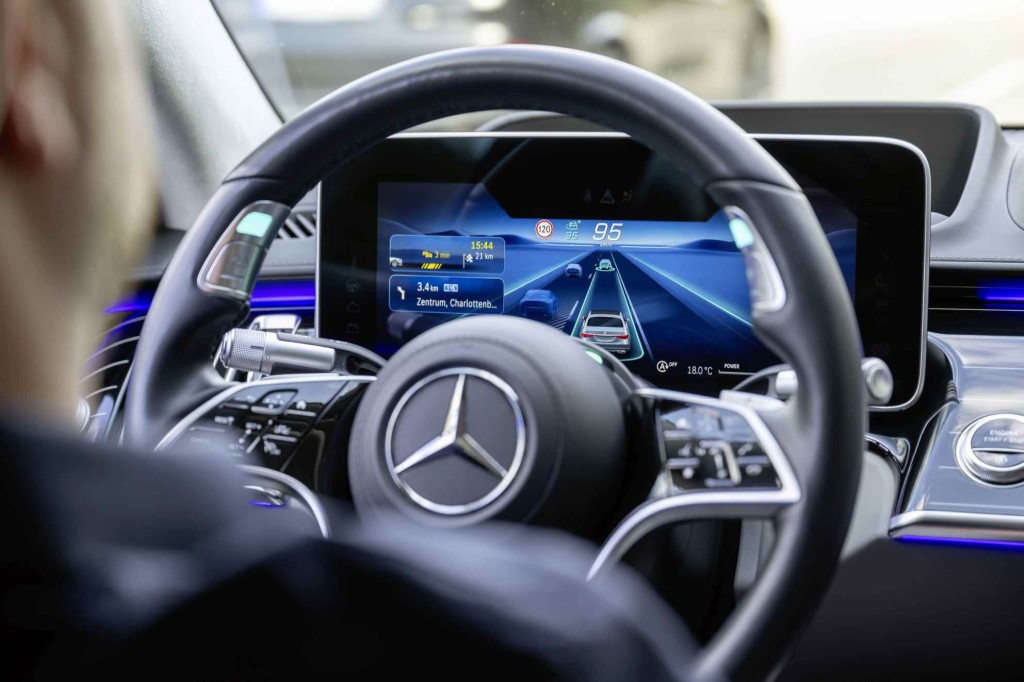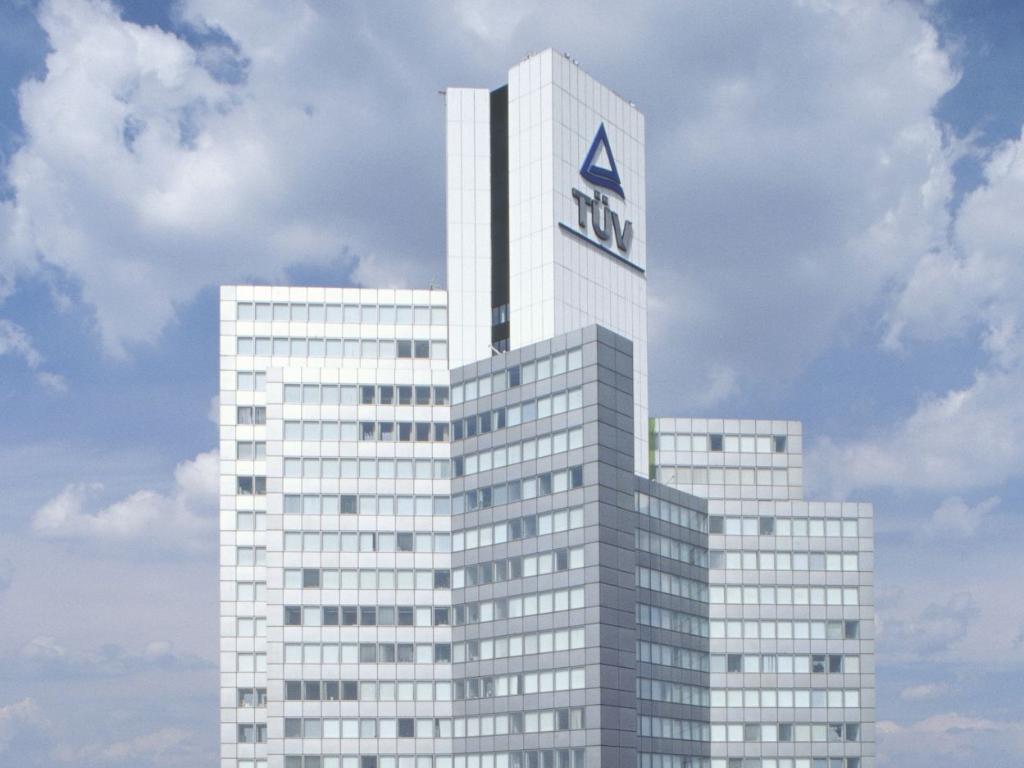TÜV Rheinland: Mercedes-Benz receives approval for highly automated driving up to 95 km/h
Cologne | 19 December, 2024

TÜV Rheinland carries out the tests for Mercedes-Benz as Technical Service / German Federal Motor Transport Authority approves automated driving up to 95 km/h on highways / Drive Pilot is the world's first approved Level 3 system for speed / www.tuv.com /
Highly automated driving has reached another milestone. Following approval tests by TÜV Rheinland, the German Federal Motor Transport Authority (KBA) has granted the Drive Pilot system from Mercedes-Benz for the S-Class and EQS extended type approval up to a speed of 95 km/h on freeways. While the previous version could only be used in traffic jams, in heavy traffic and only up to a maximum speed of 60 km/h, the update now also enables highly automated driving in flowing traffic. The automatic lane departure warning system from Mercedes-Benz, also known internationally as the "Automated Lane Keeping System" (ALKS), is therefore the world's fastest Level 3 system in a series-production vehicle.
"Mercedes-Benz was and is one of the technological pioneers. More than three years ago, we were the very first technical service to carry out the approval tests for the ALKS. The KBA then granted Mercedes-Benz the world's first Level 3 type approval. In a way, that was pioneering work," says Thomas Quernheim, Global Business Field Manager Engineering & Homologation at TÜV Rheinland. "For the new version of the Drive Pilot, our engineers once again carried out numerous static analyses and dynamic driving tests on test tracks and on public roads."
Confidence in new technology through focus on safety
The almost 150-page report for the KBA contains everything about the ALKS update. The necessary approval tests include comprehensive tests of functional safety, cyber security, data protection and security tests as well as extensive hazard and risk analyses. "Confidence in safety is of fundamental importance for a new technology. The entire range of approval tests, inspections and analyses is geared towards the safety of highly automated driving. This is what TÜV Rheinland stands for: as a pioneer for better mobility," emphasizes Thomas Quernheim.
Make yourself comfortable - your car also drives on its own
Before the ALKS can take over the vehicle and steer it along the highway, a number of conditions must be met: Is the Mercedes driving in the right-hand lane of the highway, is there a lead vehicle in front of it or is the outside temperature above 4 degrees Celsius.
If ALKS can be activated on the steering wheel, not only is the speed correct, but all other necessary conditions are also fulfilled. One press of a button is all it takes, after which the driver can turn his or her attention to other things and relaxation in accordance with the regulations.
If the system detects a problem, such as an approaching roadworks or missing lane markings, an alarm sounds and the driver must take over the wheel immediately. If the driver does not react, the Drive Pilot makes a safe emergency stop that can also be controlled by the traffic behind.
A huge amount of data is constantly analyzed
"All around the vehicle, cameras, ultrasonic sensors, radars, a GPS antenna and a LiDAR (laser radar) are constantly collecting a huge amount of data. The flood of image and measurement data is analyzed by the control unit in real time and the related data is merged. For example, the different camera perspectives merge to form an image that can be seen on the monitor and is supplemented by information from systemic specifications and external influences," explains Thomas Quernheim.
The hardware alone shows how complex highly automated driving already is. The complexity of the next level of autonomous driving can only be guessed at.
Your contact for editorial inquiries:

TÜV Rheinland Press Office
Do you have any questions on this topic or need further information?
Please do not hesitate to contact us:
Phone: +49 221 806-2148